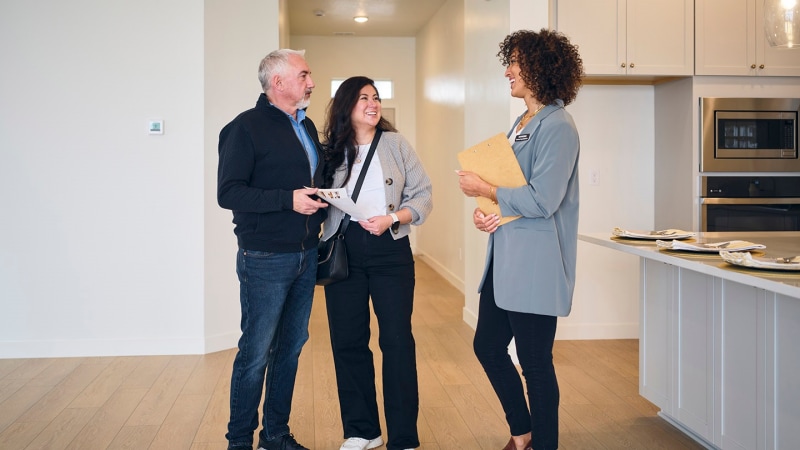The benefits of homeownership

Many of us grew up with the same American dream: finding a dream job, settling down and of course, buying a home. As we evolve, we may start to question how homeownership has its place in our new narrative of the American dream. What exactly is the value of owning a home? In this article, we’ll explore the benefits of homeownership and why it may still be worth investing in a home of your own.
Is buying a house worth it?
The perks of buying a property are heavily dependent on the housing market, your personal finances and your goals with homeownership. Before buying a property, it’s important to figure out why you’re interested in buying.
For example, are you buying a home because you’re looking to make an investment and increase your net worth? Then, buying a home may be worth it if the following apply to you:
- It’s an overall sound financial decision
- You’re looking for a relatively stable investment that can appreciate over time
- You want to build generational wealth
- You plan on making it your primary residence and living there long-term
- You’ve determined it costs less to buy a home than to rent
- You’re looking for more stability for you or your family
Navigating the homebuying journey can feel overwhelming to some. The good news is there are mortgage assistance programs that can help make your dream of homeownership a reality.
Why to consider buying a home vs. renting
As a long-term renter, you might be married to the freedom that comes with a lease. The no strings attached lifestyle means you can move apartments and even cities without having to worry about managing a property or paying a mortgage.
The ultimate argument against renting long-term is that you don’t have a home of your own at the end of the leasing term. The chunk of cash that goes toward rent each month is paid to the homeowner, so you’re not able to build out a potential investment.
The perks of homeownership
There can be a lot of perks of homeownership. Some of the big ones:
- Can be cheaper than renting long-term. Securing a mortgage with competitive rates and predictable monthly payments gives you more control over your monthly expenses than a landlord that prices you out of your lease.
- Builds equity which can result in profit during a sale. If you sell your home after building equity, you may end up making a profit. You can also use your equity to finance other projects or for emergency medical expenses by taking out a home equity loan, for example. A home equity loan lets you borrow a certain amount of money based on how much equity you have in your home and use this money somewhere else. As a note, Chase does not offer home equity loans.
- Increases your net worth. As you build equity in your home you are also building your net worth. Owning a home is a medium to store and save money. An investment that’ll likely appreciate over time. The housing market is known for fluctuating, but from a long-term perspective majority of homeowners make money during a sale.
- Stronger sense of community. Buying a home encourages you to get to know your neighbors and get involved in local affairs. There’s a sense of belonging and a sense of pride that comes with being a homeowner alongside others in your community.
- Opportunity for tax deductions. The interest you pay on your mortgage, insurance premiums, property taxes and even improvements to your energy efficiency may provide an opportunity for tax deductions. Remember to consult with your tax advisor if you’re looking to understand how buying a home may impact your taxes.
- More control over your environment. Owning your home means you can adjust it to your liking — you can build, tear down walls and design the home of your dreams.
But, even with all those perks, buying a home isn’t necessarily better than renting a home, and renting a home isn’t always better than buying. To determine what’s right for you means figuring out what you can afford, how you want to spend your money and what investments you’d like to have in the future. If you’re looking to immerse yourself in a community, build equity and settle down then buying is worth considering.
Next steps to explore
If you decide to buy a home, here are some next steps:
- Calculate what you can afford, including a budget for closing costs.
- If you haven’t already, start saving!
- Get prequalified for a mortgage and determine your monthly mortgage payments.
- Start looking at houses. You can start by browsing home listings online or by hiring a qualified real estate agent for assistance.
Now that you’ve explored the value in buying a home you can move forward and make an informed decision. If you’re looking to learn more about your next steps, you can speak with a home lending advisor today.



